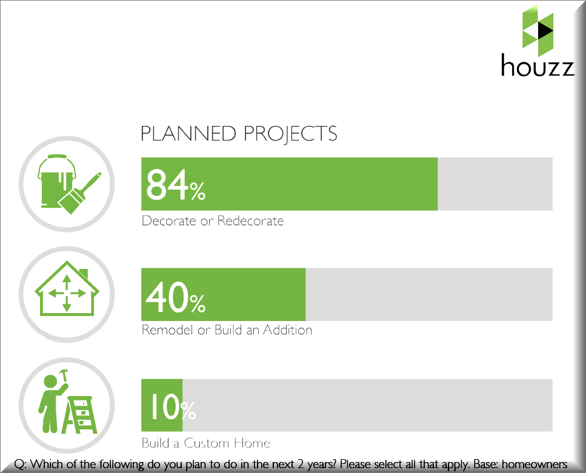How do I choose a remodeling contractor?
Ten Steps to a Better Remodeling Project
The number one fear I hear when I do a presentation on the remodeling industry is, "I want to get the best value with the best experience. I don't want to get ripped off . How do I know which contractor will do that?"
Finding the right contractor can be daunting if you've never been through a remodeling project before. For most of us, we're trusting our largest asset to another person - someone who, through the work they will be performing, will be upsetting the natural order of our lives for days, weeks or even months.
The key to getting through this with your sanity in tact, and even a wonderful experience you can be proud of, is by doing the due diligence up front before you even decide on the company doing the work. Here are 10 steps everyone should follow before they choose their remodeling contractor to ensure not only a great project, but a great experience.
1. Get recommendations. Get recommendation from friends, bankers and neighbors about whom to interview.
2. Ask contractors for references. Better yet, ask to be taken to a job site during working hours. Is it clean and safe? Are the workers respectful of the home? Great projects are as much about the process as the finished product.
3. Ask about certifications and memberships. What does the firm do for the community and its industry? How does it keep its staff trained and up-to-date about materials and building techniques?
4. Make “apples to apples” comparisons. When you get estimates from multiple contractors, make sure you are comparing “apples to apples”. When it comes to a remodeling project, there are many options. For example, lower quality materials might be used to achieve a lower job cost. Do both bids include the same materials? What about service? Will you be getting the same level of attention throughout the project from the companies you're considering?
5. Get everything in writing. An example of items that you need to get in writing would be costs, schedules, any allowances or contingencies. A contract protects both parties and can be a good reference document if there are unexpected changes.
6. Be open about communication during the project. Whom should the contractor call for decisions? Do you like phone calls at work, home or on your cell phone? What about emails? It's critical to understand how issues will be communicated and resolved througout your project.
7. Get the notes from the meetings. Good communication is grounded in thorough note taking. If the contractor is taking notes, make sure to get a copy and review it for accuracy. If the contractor is not taking notes, how are you sure that everything you’re saying is being heard and retained?
8. Be sure to get a warranty that means something. Is the warranty on workmanship one or five years? One of your reference calls should be to someone who has made a warranty claim. Ask about satisfaction with the process and outcome.
9. Remodeling is different from building new. There can be a lot of surprises behind your walls that can require adjustments by the contractor mid-project. Most projects will encounter some type of stumbling block. Ask your contractor how these hurdles are handled, and ask those references you call how smoothly their project ran.
10. Be clear about your project needs. What do you want done? What is your timeline for completion? What is your budget - how much can you afford to invest in this home? Who will use the space after it is done? How do you want to feel during the project and when the project is completed?
Ask questions and become educated. We get to remodel different homes every day, but most people only get to – or have to remodel – once or twice in a lifetime. Invest your time before you invest your money to ensure your remodeling project is a success.



